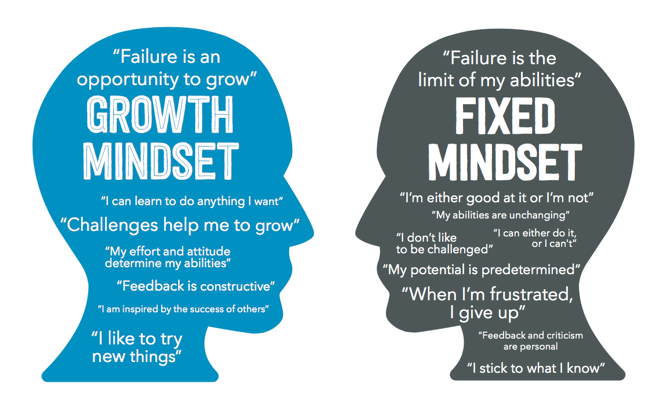Growth vs. Fixed Mindset
How each mindset affects learning
January 17, 2022
Do you ever feel stuck on an assignment, test, or life in general? Have you thought about what mindset you’re practicing? According to “Mind Set Health”, a growth mindset consists of believing in yourself and that your intelligence and talents can be improved over time.
With a growth mindset, learners are able to learn from mistakes and apply them to future problems. Having a growth mindset allows people to accept setbacks, and when they do achieve your goals, confidence and empowerment grows, which is beneficial to future challenges and learning.
The opposite of a growth mindset is a fixed mindset. A fixed mindset can be detrimental to one’s learning environment and even affect those around someone. When mistakes are made, some people try to hide failures and mistakes, and believe that they can’t go on anymore. They avoid challenges because the “easy route” is what they are comfortable with. Giving up easily is another characteristic of a fixed mindset. When feedback is given back, it gets ignored because it is believed to be too criticizing and personal.
Which one would you classify yourself as?
In a study performed by psychologist Carol Dweck (author of Mindset) with junior high school students, motivation and academic performance skyrocketed when they adopted a growth mindset. This outlook was also particularly beneficial in the subjects of math and science. Not only does it make easier for those studying math and science but studies were shown that those students received a higher grade point average.
With the second semester of school in full swing it is important to have a growth mindset in order to be successful and open to making mistakes and learning from them. Higher motivation will lead to major improvement in both the classroom and outside of school.


